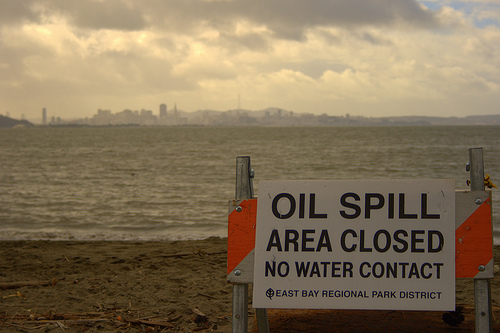Oil and Democracy

I haven't read Kenneth Pollack's A Path Out of the Desert so I won't vouch for Lee Smith's gloss of its argument but I thought that what Smith says is worth commenting on:
He identifies America's chief vital interest in the region without embarrassment: Persian Gulf energy resources. Until the United States develops an adequate substitute for oil, we are stuck in the Middle East protecting the free flow of affordable fossil fuel that not only fills American SUVs but also ensures the stability of global markets. Pollack makes a good case that were it not for our presence in the Gulf, we would not be such a valuable target on the jihadist hit list, and were we to leave tomorrow, the threat to the United States from Arab terror outfits would largely subside.
Since we are not leaving, we need to repair the region with a broad program of economic and political reform, different from the Bush administration's quick-fix obsession with elections that merely lent democratic legitimacy to Islamist groups in the Palestinian Authority, Iraq, Lebanon, and Egypt. Pollack argues that a process of real liberal reform will take decades, if not longer.
I suspect that views of this sort are widespread both in elite Washington and around the country, and it's worth pointing out that this really doesn't make much sense. The basic proposition here is that if our military weren't so intimately involved in the Middle East, that this would run the risk of economic harm via instability in oil supplies. And fair enough, but our current policies have economic costs of their own in terms of both monetary expenditures (about $1 trillion on Iraq thus far, more than that in terms of bases and fixed infrastructure over the past couple of decades) in terms of terrorist attacks, in terms of pricey efforts to secure ourselves against terrorist attack (been on an airplane lately?), as well as in various other familiar airy senses.
That's the short-run tradeoff. In the longer term, we could massively mitigate the harms Pollack is worried about here by investing in making our country less oil dependent so that fluctuations in the price of oil wouldn't be such a big deal. A move of that sort would, of course, be a costly and difficult undertaking. But the alternative "a broad program of economic and political reform" that "will take decades, if not longer" to complete certainly doesn't sound any easier. And certainly there's no effort here to make an explicit cost-benefit calculation and explain why our past ten years' worth of forward-leaning policy in the Gulf have brought us more in economic benefits than they've cost, or that completely remaking the politica and society of the Arab world would be easier or cheaper than building a lot of windmills and trains.
Beyond that, this agenda is completely incoherent. Let's say you're a reform-minded Arab young professional surfing the web somewhere. And you read that Kenneth Pollack, leading American Middle East expert, has put forward a new book on grand strategy. The book argues that the US needs to promote a broad program of reform in the Arab world in order to prevent a violent Arab backlash against efforts to use American military domination to exploit the natural resources of the Arab world. What are you going to think about that? What's that going to make you think the next time you hear the American government talk about reform? Are you going to believe that invading Iraq was a well-intentioned effort to promote reform that perhaps went badly, or are you going to believe that it was an ill-intentioned effort to use American military domination to exploit the natural resources of the Arab world?
Reform is hard. Promoting reform is harder. Promoting reform in the name of cheap oil and military domination is almost certainly impossible.
Meanwhile, Smith seems to have decided to move to an even-more-wrongheaded position. His basic critique of both Pollack and the neocons is, basically, that they aren't racist enough ("As we saw with Hezbollah's orgiastic celebrations for released child-murderer Samir Kuntar, the problem with the Arab world is Arab societies themselves") and need to recognize that since Arabs are kind of subhuman all this democracy talk isn't going to get us anywhere.
Photo by Flickr user smatkins used under a Creative Commons license